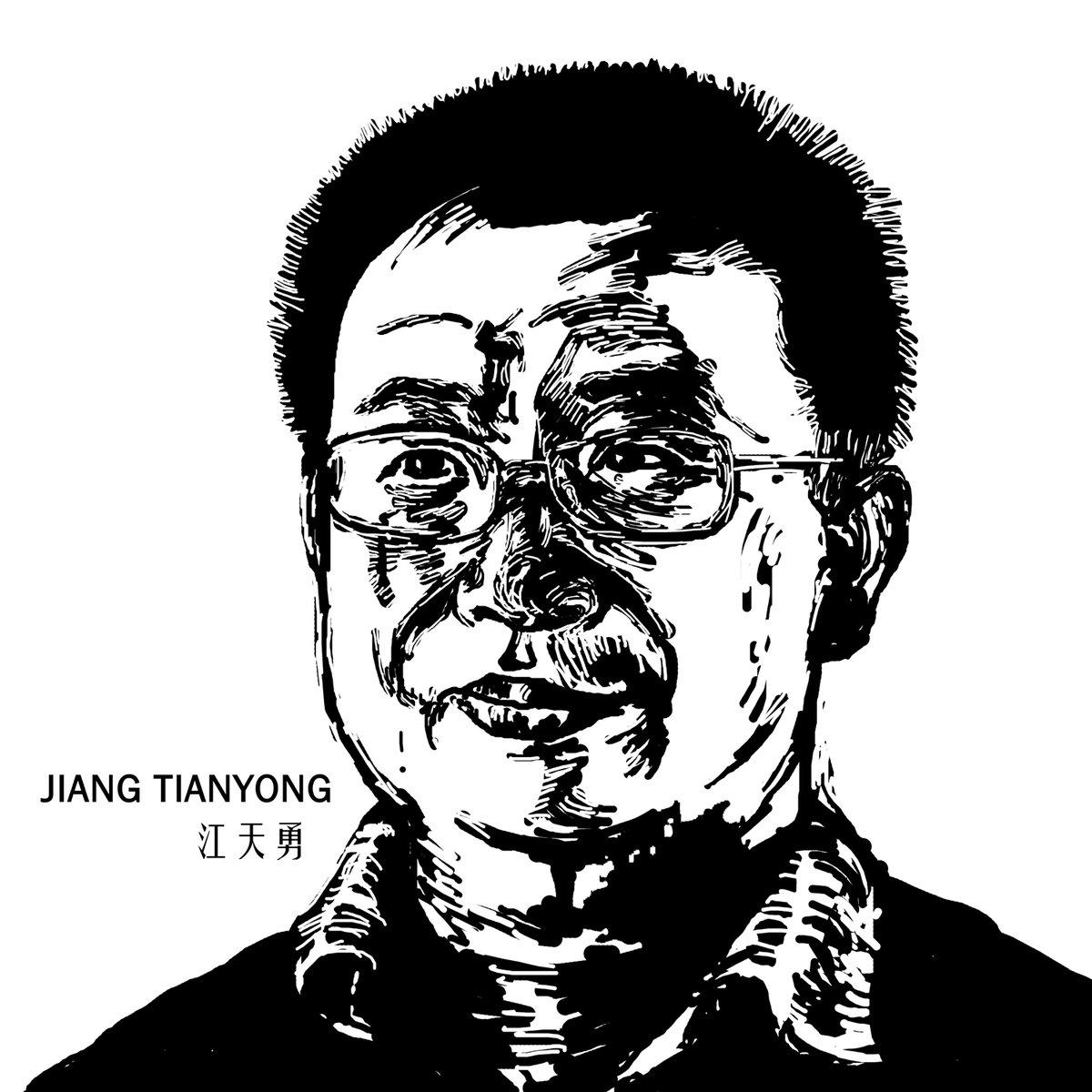Rights activist and former lawyer Jiang Tianyong was sentenced to two years in prison for inciting subversion on Tuesday, three months after what supporters dismissed as a “choreographed” trial complete with apparently orchestrated online commentary. From The Washington Post’s Emily Rauhala and Simon Denyer:
The court in the central Chinese city of Changsha said Jiang tried to “overthrow the socialist system” by publishing articles on the Internet, accepting interviews from overseas media outlets, smearing the government and over-publicizing certain cases.
His defenders maintain his actions are all normal for his job as a lawyer.
The trial and sentencing are seen by human rights experts as an attack on what remains of the country’s legal activist community and on liberal politics in general, as President Xi Jinping moves to bolsters the Communist Party and purge its critics.
“This case has been an absolute travesty from the beginning, sustained by nothing other than pure political persecution, not facts or broken laws,” said Sophie Richardson, China director of Human Rights Watch. “By putting Jiang Tianyong behind bars, China does him, his family and itself irrevocable harm.”
[…] Xie Yanyi, a Chinese rights lawyer, called Jiang in a statement the “soul of the 709 rescue effort” for his determination to help colleagues in trouble. Jiang “spared no effort” when it came to defending China’s most vulnerable groups, Xie said. [Source]
Jiang was detained in the course of this “rescue effort” following 2015’s Black Friday or 709 crackdown. He disappeared while traveling to Changsha last November to visit Chen Guiqiu, wife of detained lawyer Xie Yang. He later confessed on television, under suspected coercion, to having helped Xie fabricate and disseminate graphic reports of torture in custody. Chen Guiqiu and Jiang’s wife Jin Bianling are among several relatives of political detainees who have emerged as a “new front” of activism in the face of collective punishment including evictions, obstructed education, surveillance, and travel restrictions. Chinese authorities have long either punished family members in order to pressure activists, or else recruited them as agents of dissuasion. NYU law scholar Jerome Cohen has noted that the emergence of 709 relatives as a coherent voice appears to be a reaction to official policies of collective punishment. Some of these relatives were present outside the courthouse for Jiang’s sentencing, where they were reportedly mistreated by security personnel:
Human rights lawyer Jiang Tianyong was sentenced to 2 years in prison this morning. 709 wives were attacked by Chang Sha local police…… pic.twitter.com/geV53cr6DO
— SU Nan (@SUNan65897871) November 21, 2017
Li Wenzu was dragged on the ground by the police and her coat was taken off. "They were really cruel. I could barely breathe."she said. https://t.co/QkesZWQfP6 https://t.co/QkesZWQfP6
— SU Nan (@SUNan65897871) November 21, 2017
As the AFP’s Becky Davis highlighted, authorities apparently worked to divide Jiang’s own family:
Jiang’s wife, Jin Bianling, said none of the lawyers she had hired were allowed to see him and she only learned in August that the court had appointed one.
“I contacted him continuously, but as soon as he heard I was Jiang Tianyong’s wife, he would immediately hang up the phone,” Jin, who fled to the US in 2013, told AFP by telephone.
She said the court had tried to pit Jiang’s parents against her, telling them she had been “brainwashed by the West” and to cut off contact.
His father was allowed into the courtroom Tuesday, but his sister was blocked from attending, she added. [Source]
China's weaponization of family ties continues to do a number on me. On one hand family is emphasized as bedrock of social stability — and yet, in XJ/cases of rights lawyers/etc, those ties are actively pulled apart by the state.
— Felicia Sonmez (@feliciasonmez) November 21, 2017
Others also commented on the sentencing on Twitter, including U.S.-based law scholar Teng Biao:
我的好友、人权律师 #江天勇 被以煽颠罪判刑两年。颠覆这样的政权不是犯罪,而是光荣。#jiangtianyong #china
— Teng Biao (@tengbiao) November 21, 2017
“My good friend, rights lawyer Jiang Tianyong, has been sentenced to two years for inciting subversion. Subverting this kind of regime is not criminal, but honorable.”
#JiangTianyong sentencing likely to have a chilling effect since "evidence" includes things most HRDs do: critical speech of the gov on Twitter/weibo, accepting foreign interviews,attending trainings, showing support to other activists in trials, "hyping up" sensitive legal case. pic.twitter.com/wxU409tQYs
— William Nee (@williamnee) November 21, 2017
And, #JiangTianyong has already been detained for one year. Despite the relatively short two-year sentence, the three-year deprivation of political rights means that he will be silenced for three more years after he’s due to be released in Nov 2018. https://t.co/q2IYo363yS
— Patrick Poon🎐 @ppoon.bsky.social (@patrickpoon) November 21, 2017
And similar cases indicate that #JiangTianyong could well not regain his freedom after he completes his full criminal sentence. We need a new phrase for prolonged, uncertain punishment: 无期剥夺人权 (indefinite deprivation of human rights)? https://t.co/OOqJH4i77e
— Maggie Lewis (@MargaretKLewis) November 21, 2017
Congratulations to the Chinese government. Another human rights lawyer sentenced to prison solely for being a potential embarrassment to the authorities. Jailing whistleblowers don't make the root problems disappear, as Beijing is bound to find out at some point. https://t.co/yMRDPdfC40
— Nicholas Bequelin (@bequelin) November 21, 2017








